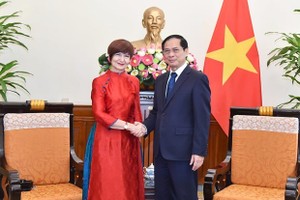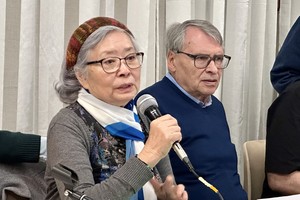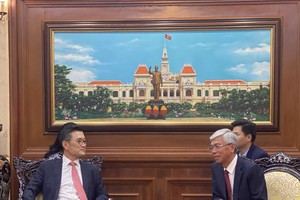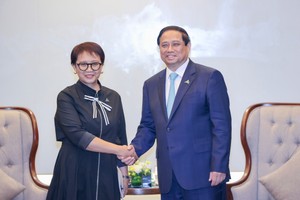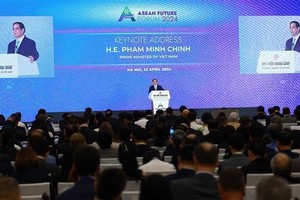South Korea said on Wednesday it had accepted a proposal by the rival North to hold talks on reunions of families separated by the 1950-53 Korean War, in another sign of easing tensions on the divided peninsula.
The announcement came on the second day of military talks about two deadly attacks last year that killed 50 South Koreans.
The two sides have both made conciliatory gestures in recent weeks after tensions spiked last November, when the North shelled an island in the first attack against civilians on South Korean soil since the Korean War.

That attack set off a wave of war-like rhetoric that worried financial markets in a region home to one-sixth of the world's economy.
Under pressure from their main allies, the United States and China, the neighbors have stopped their combative language, reopened a hotline at their border and even raised the prospect of a resumption of broader aid-for-disarmament talks.
"The South Korean government agrees with North Korea that humanitarian issues including family reunions should be discussed," a unification ministry official told a news briefing in Seoul.
Over the past decade, more than 20,000 South Koreans have been briefly reunited with relatives, but time is running out for many of the aging 80,000 still awaiting their chance.
Last October, some 200 Korean families split by the war were reunited for the first time in the first such exchange in more than year.
MILITARY TALKS
Separately, colonels from the two Koreas met again at their heavily fortified border on Wednesday, a day after they argued over procedural matters to set up a higher level meeting.
The South demanded that North Korea take responsibility for the sinking of one of its warship last March and the shelling of Yeonpyeong island, and promise not to "provoke" the South again.
In return, the North said the subject of attacks should be discussed at the higher-level meeting and that it only wanted to discuss logistical matters for those talks.
Pyongyang has maintained it did not sink the vessel, and that it was provoked into shelling the island after the South fired artillery rounds into its water during a military drill.
The two sides also argued over the level at which the more senior talks would be held, although media reports said they agreed it would not be at the ministerial level.
The North also suggested the higher-level meeting take place before or after February 15, the eve of North Korean leader Kim Jong-il's birthday, the South's Yonhap news agency quoted a government source as saying.
The source said this was not possible as the government needed at least two weeks to prepare for the talks.
Officials say it may take several rounds of working-level discussions to prepare for the senior meeting.
Beijing and Washington had set inter-Korean dialogue as a prerequisite to restart six-party talks which offer the North aid and diplomatic recognition in return for disabling its nuclear arms programme. Tokyo and Moscow are the other six-party members.
The North has said it wants to return to the broader negotiations, but Seoul and Washington have questioned its sincerity about denuclearizing -- pointing to its revelations last November about a uranium enrichment programme.
The two Koreas are still technically at war, because an armistice, not a treaty, ended their 1950-53 civil conflict.

